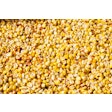I recently ordered a quarter cattle from a local farmer and there’s a good chance I won’t have enough freezer space for all the meat. So, I asked a friend — a fellow mom with young kids — if she and her husband would like to go in on the purchase. Her first question was “Is it grass-fed,” followed by, “Is it antibiotic-free?”
Having been served feed-finished burgers at backyard bar-b-ques they’d hosted over the years, I thought she was kidding. But her tone was serious. I explained they were conventionally raised, corn-fed, and treated with antibiotics when necessary. “I think we’ll pass,” she told me.
I’ve spent my entire career covering commercial agriculture and the American feed industry; so this was a hard pill to swallow. It was my cue to “agvocate” (advocate for agriculture). After gently prodding for reasons behind her objection, it became clear she, like many other Americans, was getting her information about food and agriculture from social media, The New York Times columnist Mark Bittman and Chipotle. While I’m not immune to jumping on the consumer bandwagaon every once in a while (admittedly, my beef purchase was spurred by the “eat local” movement), I was surprised to hear beliefs that were once held by more extreme folks had crept into the mainstream and taken serious hold.
It’s coming to the point where people don’t trust an agriculture product unless it’s labeled organic, all-natural, free-range or GMO-free. Now legislators are making strides in putting label requirements on the books. On May 8, Vermont’s Gov. Peter Shumlin signed a bill requiring GMO ingredient labels on any food sold within the state — the first in the country to do so.
A lawsuit filed by the Grocery Manufacturer’s Association and other food industry groups mean it has a long way to go before impacting grain handlers, but if the courts uphold the law, it’ll go into effect in July 2016. Unfortunately, even a victory in Vermont won’t put an end to the GMO-labeling issue. According to the National Conference of State Legislatures, there are currently 84 other GMO-related laws proposed in 29 states across the country.
It’s up to us to educate friends and neighbors on modern-day agricultural practices, how the supply chain operates and is regulated from farm to table, and how labels like grass-fed and hormonefree are marketing terms that don’t automatically make them healthier choices.
And in the case of GMOs, help people understand the benefits of these crops and the economic harm that labeling would eventually cause. It would require the harvesting, transferring and storing of GM crops to be completely segregated, inspected and certified, which would cost the country hundreds of millions of dollars.
You can help change popular opinion by starting a dialogue in person, or by engaging on social media. Share links and positive posts about GMOs and other agricultural issues on Twitter or Facebook. Perhaps with enough agvocating, the tide will start to turn.
Subscribe to Magazine












